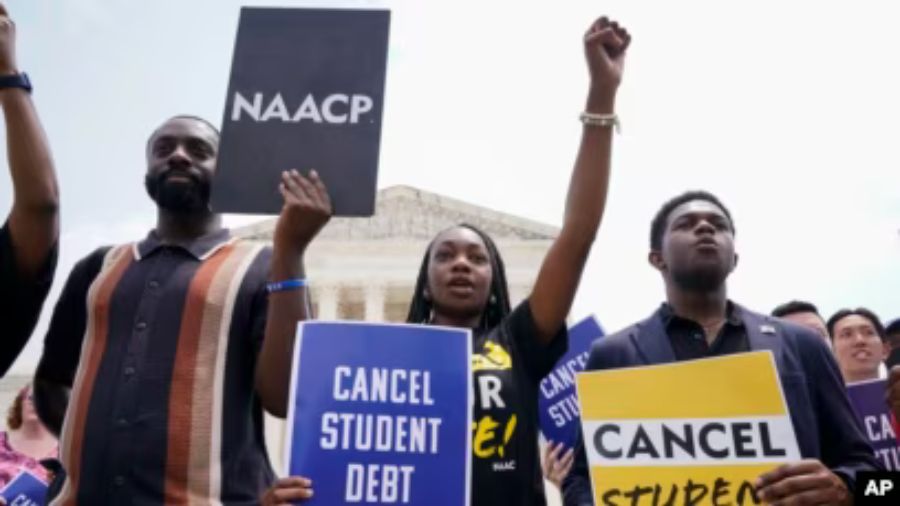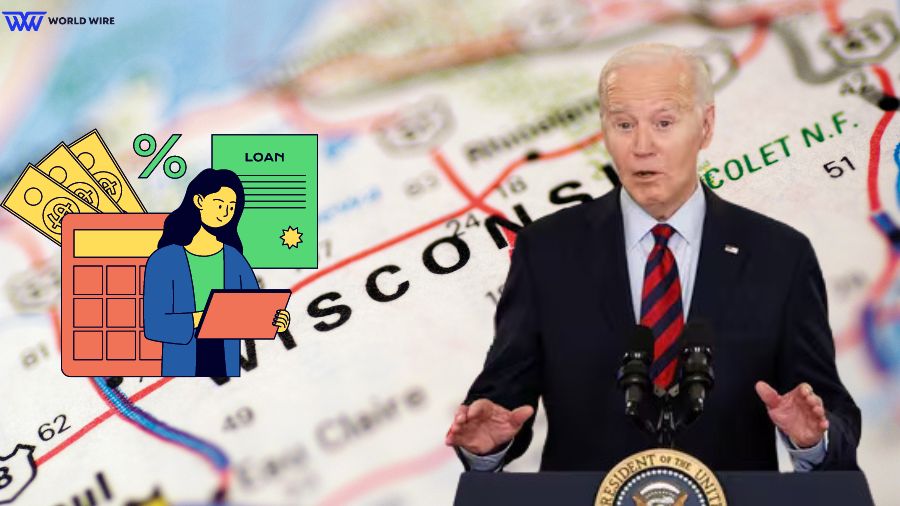President Joe Biden is set to visit Wisconsin to unveil a new initiative to relieve the burden of student loan debt for millions.
His trip, scheduled after primary voting in the Midwest, comes at a time when both Biden and his Republican counterpart, Donald Trump, face electoral vulnerabilities.
The President is expected to make an announcement in Madison, the state capital and home to the University of Wisconsin’s main campus.
Although the formal assignment of the new federal rule facilitating student debt relief may not overlap with Biden’s address, the President will outline a strategy initiated by the Department of Education following a Supreme Court decision that prevented his initial debt forgiveness effort.
Immediately after the court said Biden needed Congress to approve his original plan, the President said the decision was a “mistake” and “wrong,” highlighting Biden’s immediate response to the Supreme Court’s ruling.
In light of this, Education Secretary Miguel Cardona has embarked on a new pathway, leveraging his authority under the Higher Education Act to potentially waive or modify student loan debts under specific circumstances.
This forthcoming announcement on student loan relief, particularly relevant to younger voters, aims to strengthen key segments of Biden’s support base, which have shown signs of disappointment.
The President’s re-election campaign hinges significantly on these demographics.
Reflecting on the recent primary elections in Wisconsin, data reveals a notable trend: approximately 119,000 Republican voters cast their ballots for GOP candidates other than Trump, the presumed nominee.
Conversely, over 48,000 Democratic voters opted for “uninstructed” rather than endorsing Biden, a figure that more than doubles Biden’s marginal victory in Wisconsin in 2020.
In Dane County, a stronghold of Democratic support and home to the University of Wisconsin and Madison, nearly 15% of Democratic voters selected “uninstructed,” which starkly contrasts with the 8% statewide average.
Democratic U.S. Rep. Mark Pocan, representing Madison, expressed his astonishment at the prevalent concerns over the conflict in Gaza, particularly among older voters in rural locales, as opposed to the anticipated student demographic.
“I was surprised to see the intensity on the issue of Gaza coming not from a student voice out of Madison but older voters in more rural parts of the district,” Pocan remarked, underscoring the unexpected nature of voter concerns.

Pocan intends to discuss these observations directly with Biden, emphasizing the potential electoral implications in Wisconsin. “I just want to make sure he knows that if we’re going to have a problem, that could be the problem in Wisconsin,” Pocan stated, highlighting the strategic importance of addressing these issues.
Biden’s revised plan aims to extend federal student loan relief to additional, yet specific, borrower categories through the Higher Education Act, a move believed to offer a more robust legal foundation than the previous, broader proposal that the Supreme Court nullified.
The new plan, expected to be more focused and tailored, contrasts with the Biden Student Loan Forgiveness Program, which sought to cancel up to $20,000 in debt for over 40 million borrowers.
The plan delineates five borrower categories eligible for partial or complete federal loan cancellation, targeting particularly those in dire financial straits.
Among the beneficiaries are individuals whose accrued interest has eclipsed the principal loan amount. The proposal suggests resetting their debt to the original loan value by eliminating up to $20,000 in interest, contingent on their income levels.
Furthermore, the plan proposes eradicating all remaining debt for borrowers who have been repaying their student loans for extensive periods.
Specifically, loans associated with undergraduate studies would be forgiven after a 20-year repayment period, with a 25-year threshold for other federal loan types.
The strategy also includes provisions for automatic loan cancellations for students enrolled in underperforming for-profit college programs and for those eligible for other forgiveness schemes who have yet to apply.
In response to advocacy pressures, the plan incorporates a “hardship” category, offering relief to borrowers at high risk of default within two years and others facing significant financial challenges.
Following a series of discussions concluded in February, the proposal is currently under review. Before its finalization, the Education Department will release a formal proposal for public commentary.
This latest initiative complements Biden’s other targeted debt cancellation efforts, which, according to the administration, have absolved $144 billion in student loans for nearly 4 million Americans.
Biden’s agenda also includes a campaign event in Chicago before his return to the White House later on Monday.







Add Comment